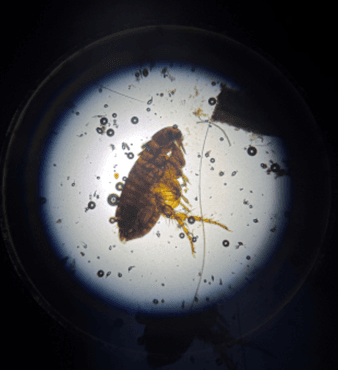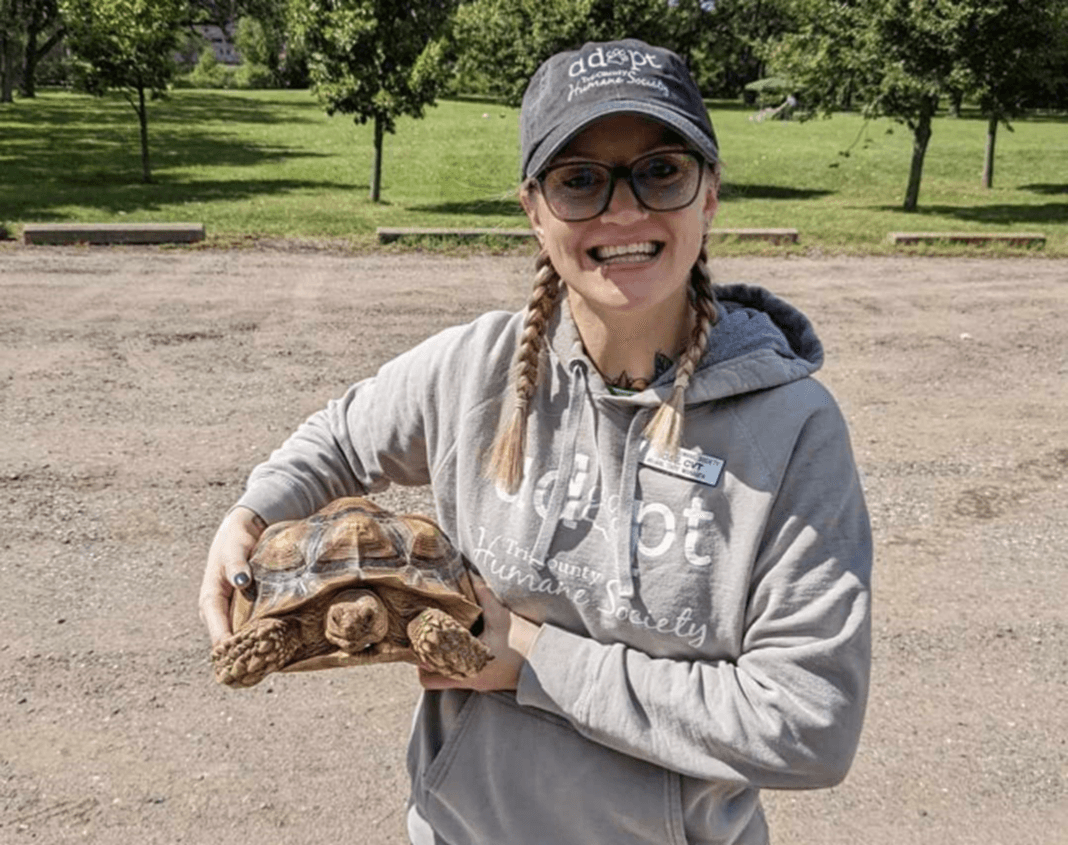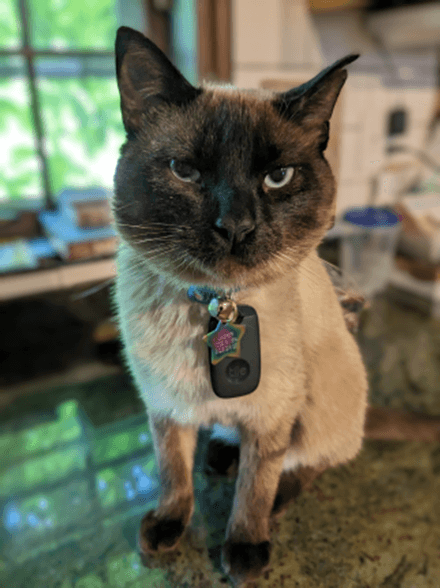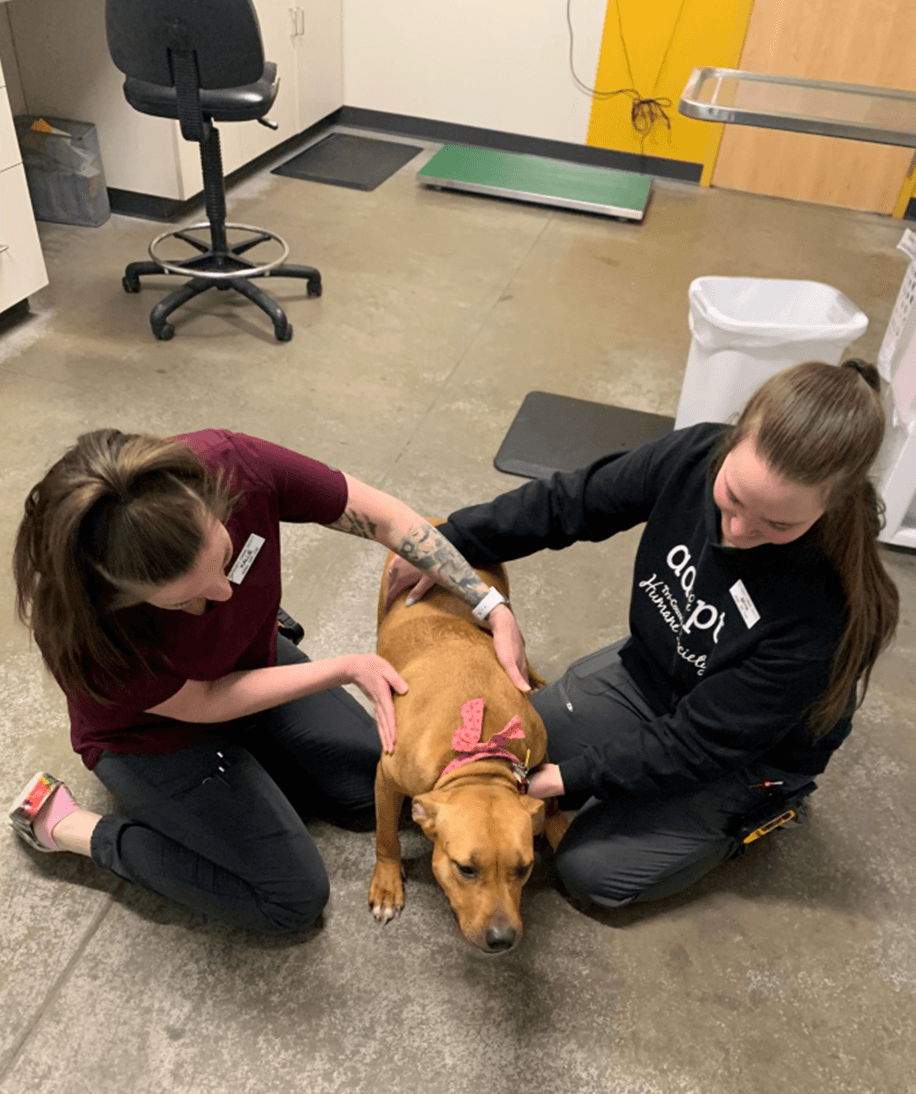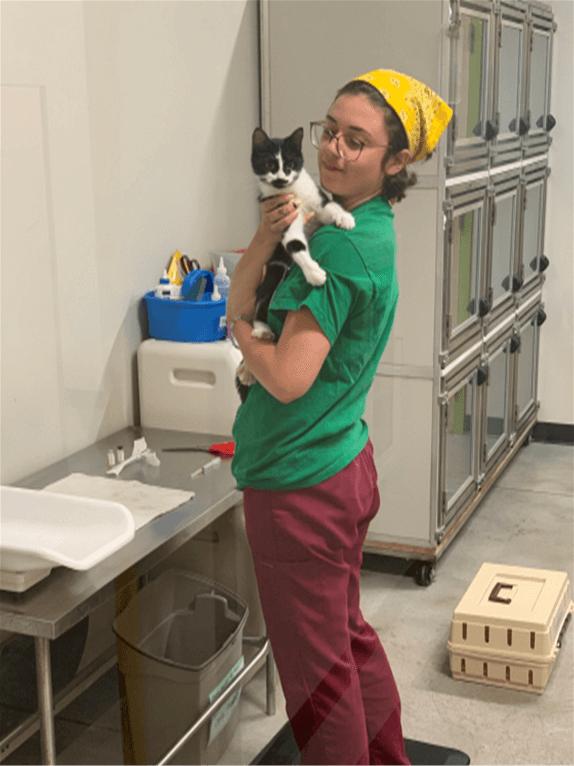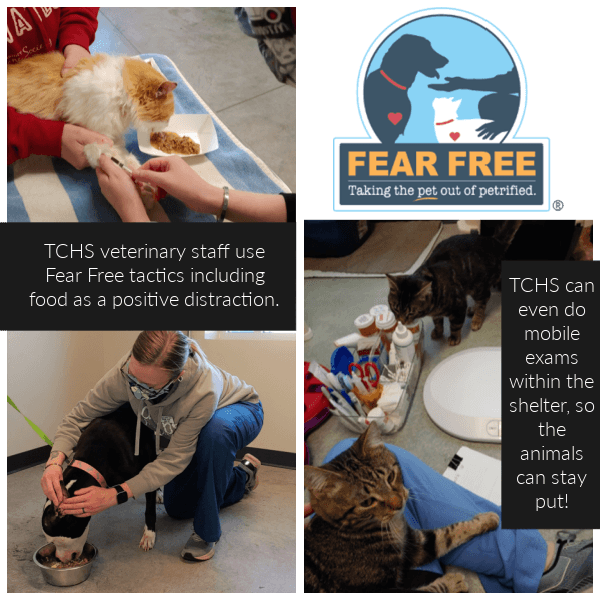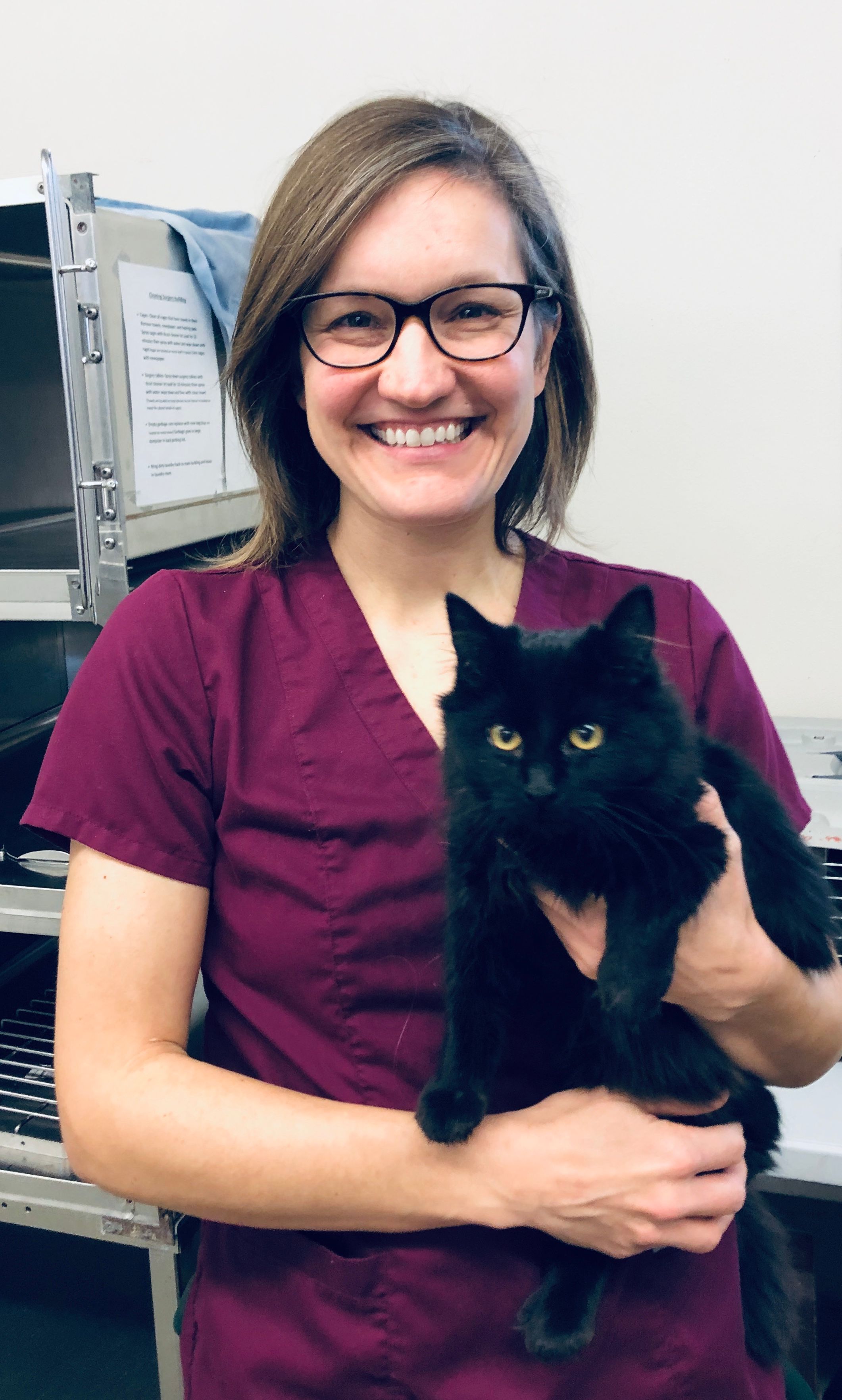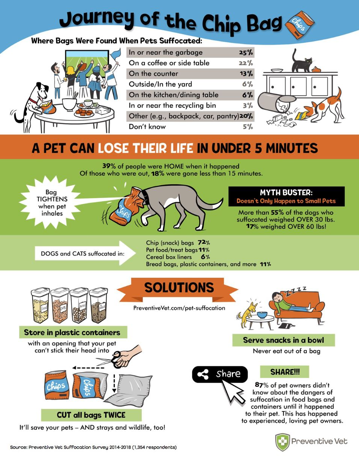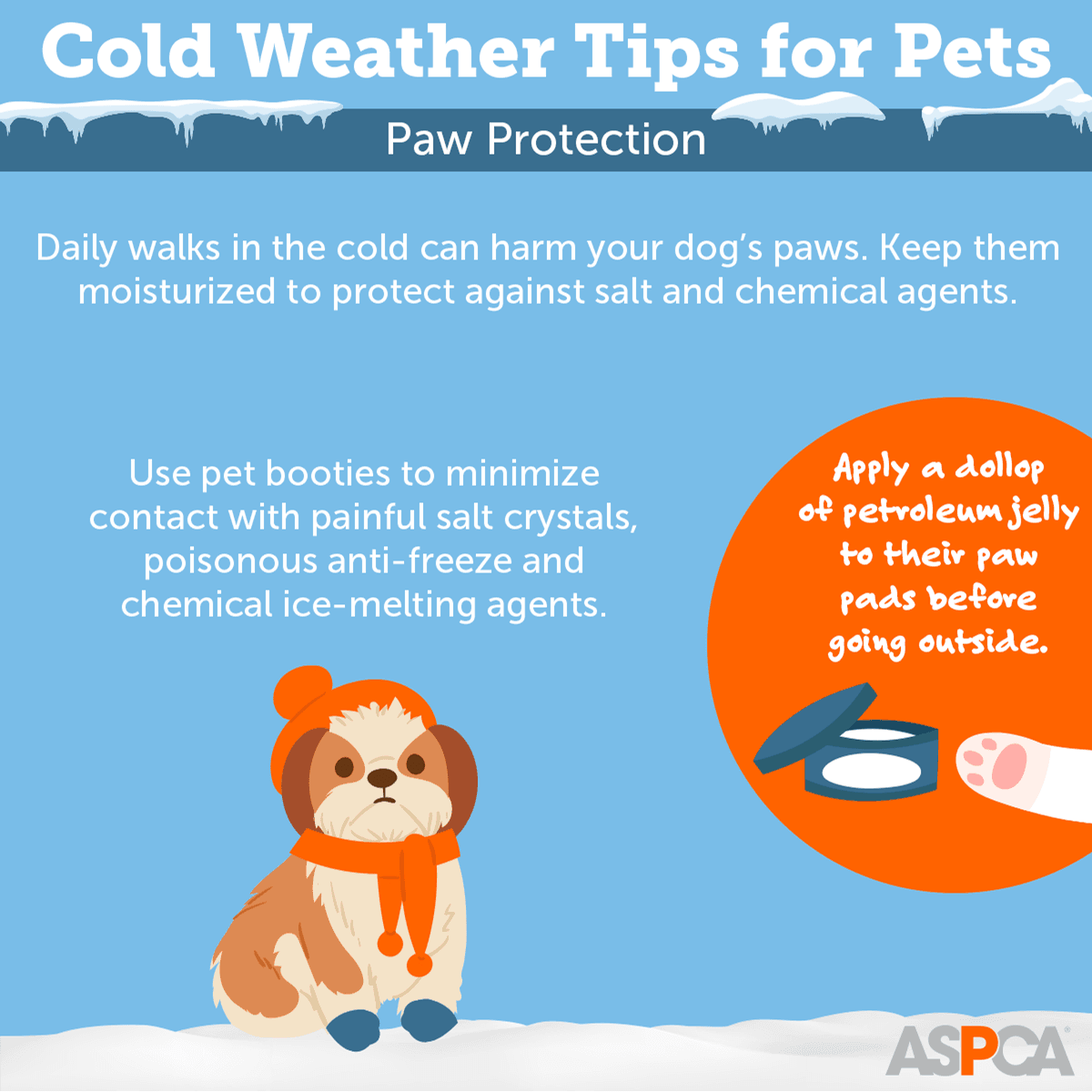General Pet Tips:
NEW TO TCHS: If you are planning to adopt a dog from TCHS (or have recently adopted one), please ask a TCHS staff member about the GoodPup training program! TCHS is excited to partner with GoodPup on on this opportunity for customized, affordable, positive dog training that you can do from the comfort of your home!
Select a topic to read the entire article:
Despite the winter weather, the creepy-crawly parasites in the pet world persist.
Internal parasites were the topic of the first part of this education series, so this focus will be on external parasites.
Fall aka “spooky season” is here! So it’s a fitting time to talk about the creepy-crawly part of the pet world: parasites.
Parasites are organisms that are sustained by living on or in another organism. They acquire their nutrition and/or vital life functions at the expense of another creature.
While some parasites cause minimal harm to their host (the animal they live on/in), others can cause significant health issues. Unfortunately, parasites are common in domestic animals, so every pet owner should have some basic knowledge on the subject.
Although many people may be “team cat” or “team dog,” there are many of us who love them both equally! It’s important to ensure the safety of all our pets, and this is a special task when introducing new cats and dogs to one another.
We hope everyone has a safe and happy Fourth of July – but remember, it can be a tough time for pets! Many get stressed by the sounds of fireworks and firecrackers, some so much that they bolt from their homes. Get some safety tips so you can keep your pet happy - and home!
Although cats and dogs are typically the stars of the shelter, there are many other types of pets who come to Tri-County Humane Society in need of loving homes.
With summer comes fun in the sun! Many of us are doing more outdoor activities and leaving the house more. It’s not uncommon that pets get lost or go missing with all the goings-on of the season. Proper identification is one of the best ways to help keep your pet safe and/or returned to you if misfortune happens.
The long-awaited springtime is here! It’s time to get out exploring, hiking, and doing all the fun outdoor activities with your pets!
Whether you make New Year’s resolutions or not, this a great time to think about the upcoming year you will have with your pets!
There are many different types of animal welfare groups operating under a variety of conditions that affect the way they function in their community. “Animal shelters” — like Tri-County Humane Society — are places that have a primary physical location to house and care for animals. “Animal rescue groups” are often foster-based organizations that do not have a primary physical space to house their animals and mostly utilize foster homes for their animals. Each organization may serve different purposes and source their animals differently.
Does your cat run and hide as soon as they see the carrier? Does your pet get stressed when you take him/her to the veterinary clinic or groomer? Is it impossible to perform a nail trim on your pet at home?
As pandemic restrictions loosen, most of us will find we are spending more time away from home. However, our dogs have become accustomed to us being constantly by their side—letting them out whenever they go to the door, or just spending more time cuddled up next to us on the couch.
It is time to get excited about Adopt a Senior Pet month! Pets of all ages deserve loving adoptive homes, but November is when we focus on celebrating senior pets! There are different interpretations of when exactly pets become “senior,” but generally accepted guidelines begin anywhere between 8-11 years old (younger for giant breed dogs).
Many of us look forward to the warm weather in Minnesota. The summer can bring fun times with your pet, but it can also bring health hazards. A major health concern for pets (especially dogs) in the summer is overheating, which can result in heat exhaustion and even heatstroke. Dogs do not sweat like humans to release excess heat; rather they rely on heavy breathing (panting) to cool themselves.
With the global COVID-19 pandemic affecting the lives of people everywhere, many have questions and concerns about their pets’ health and safety. While the virus is new and medical professionals are continually learning new information about the diseases the virus SARS-CoV-2 causes, there is a general consensus that household pets have a very low risk for infection.
COVID-19 (the coronavirus) and its effects have created unprecedented situations for all of us, in Central Minnesota and around the globe. We know Tri-County Humane Society’s friends are animal lovers (of course), so we wanted to offer some tips on how to prepare in case of an emergency.
Have you ever walked into a store that sells pet food and felt completely overwhelmed?
I know I have, and I’m a veterinarian. There are thousands of dietary choices for our co-pilots, our couch potatoes, our 2 a.m. wake-up calls, our running buddies, and our hunting partners. From natural to organic, exotic meats to vegetarian, grain-free to raw diets, the myriad choices can lead to confusion about what is best for your pet. I want to focus on one of the more popular feeding trends: the grain-free diet.
Did you know that more pets are overweight than not? Multiple sources cite over 50% of American pets are overweight or obese, some as high as 58% of cats. While we may enjoy laughing at “chonky” pet memes online, there are unfortunately many health risks associated with overweight and obese pets.
Dogs, cat, livestock, and wildlife suffocate in these bags every day, 72% being chip bags. The Bag Vacuum Seals around their face and they can't get it off it only takes 3-5 minutes for them to die and 39% people are home when this happens. More information: www.preventpetsuffocation.com
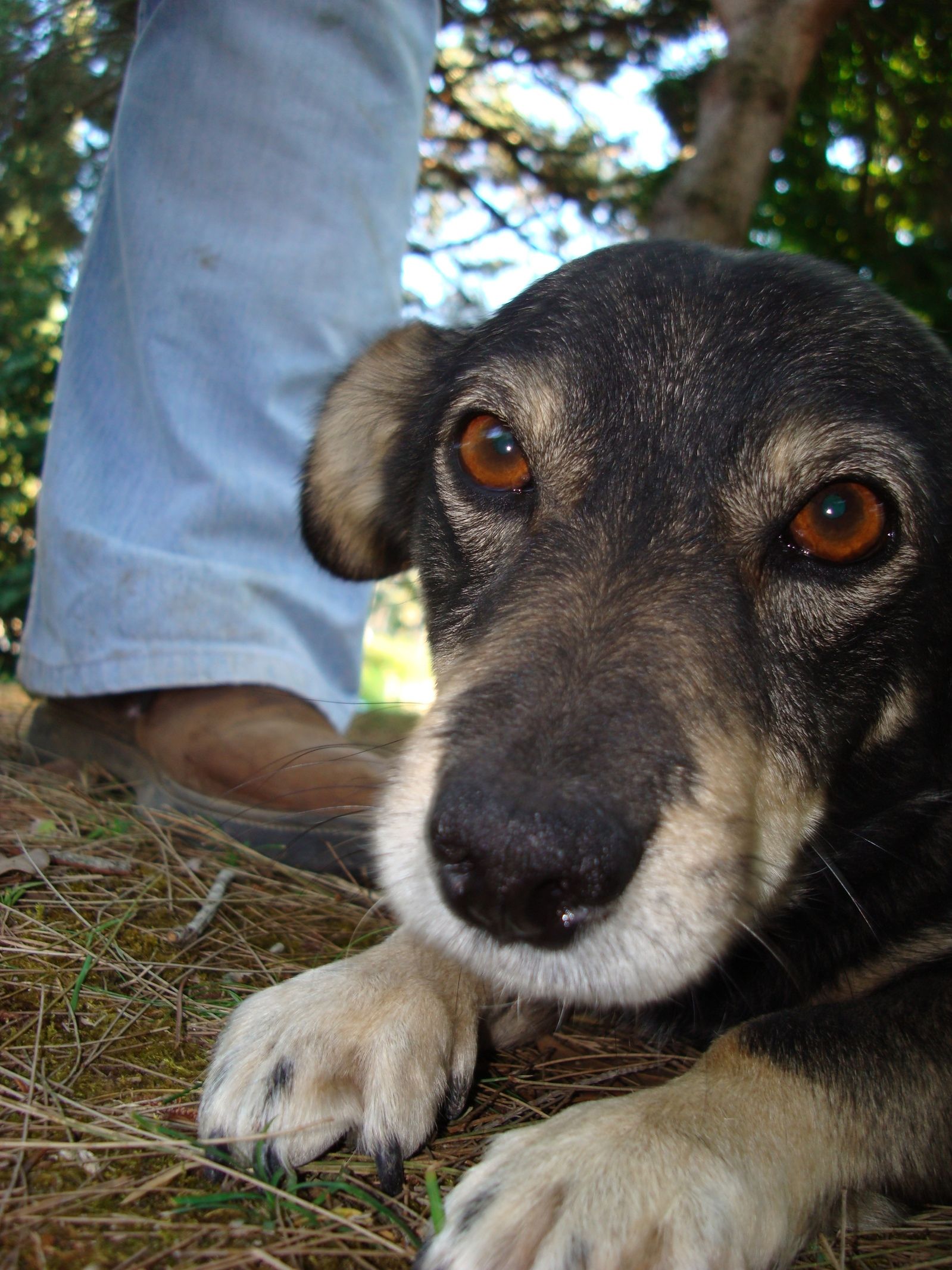
Dealing with Pets During Natural Disasters and Other Emergencies
It doesn't matter what part of the country you live in. We can all be affected by disasters - whether it's a natural disaster, wildfire, terrorist attack, or hazardous spill. Such emergencies may require a brief or permanent evacuation from your home. This guide will help you navigate through how to prepare for your pet in case disaster strikes. Look here for more: https://www.tripswithpets.com/disaster-preparedness-guide-for-pets
We never know when a disaster may strike. If you find you are in need of temporary lodging with your pet while on a trip, look here http://www.tripswithpets.com/search-hotels-by-route If you are closer to home (St. Cloud area), look here: https://www.tripswithpets.com/pet-friendly-hotels/united-states/minnesota/st-cloud
Here is a quick reference guide to the more common items and house and garden plants that are toxic to most animals and children.
I'm not sure where the phrase "fighting like cats and dogs" comes from, but in the majority of homes I am acquainted with, dogs and cats share living quarters quite amicably.
A person’s allergic reactions to dogs or cats can vary, not only with the species and breed, but among individual animals within a breed.
Pets respond to heat differently than humans do. Dogs, for instance, sweat primarily through their feet so fans don't cool off pets as effectively as they do people.
Microchips have been particularly useful in the return of lost pets. They can also assist where the ownership of an animal is in dispute.
Pets are neutered to prevent undesired births and a variety of medical disorders in both males and females. More pets are being neutered at younger ages so they do not contribute to overpopulation.
We prefer that pets live comfortably in the home with their people rather than outdoors year-round, but on extremely cold days or nights, it really is necessary! Minnesota winters are simply too harsh for even the most well-equipped breeds.


